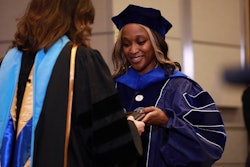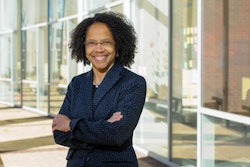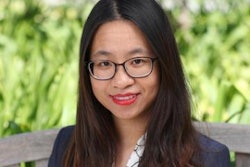When Dr. Felesia Stukes joined the faculty at Johnson C. Smith University (JCSU) in 2017, she was the first Black computer science faculty member in the HBCU’s 150-year history. Today, she is working hard to lay a foundation for her students to become future colleagues.
Part of that process requires understanding the reasons why students of color all too often choose not to pursue STEM fields despite interest and ability.
“One of the things that has been found in research is basically they don’t feel a sense of belonging,” says Stukes, an assistant professor in the School of Data Science.
Students of color may feel marginalized in a disproportionately White field. Likewise, women may still feel out of place in a room mostly filled with men. That’s why Stukes says she intentionally designs experiences and opportunities for JCSU students to feel included.
“One of my goals is to change the environment for Black and Latino students to make sure that inclusivity is intentional,” she says. “A lot of times, the women fall to the bottom of the applicant pool, so intentionally you actually choose them to participate. We don’t select just one but try to develop a small cohort and create a sense of community.”
Stukes is currently collaborating with Black computing faculty at the University of North Carolina at Charlotte and Howard University to form research groups designed to cultivate an inclusive environment for Black undergraduate students across the institutions. The project is funded by a grant from Google Research and seeks to encourage students to remain in STEM majors, graduate and go on to graduate school.
Similarly, Dr. Trachette L. Jackson, a University of Michigan mathematics professor, leads the Marjorie Lee Browne (MLB) Scholars Program, named for the first African American woman to earn a Ph.D. in mathematics at Michigan. The program is an enhanced option for the M.S. degree in either mathematics or applied and interdisciplinary mathematics that is designed to prepare students for continuing toward a Ph.D.





















